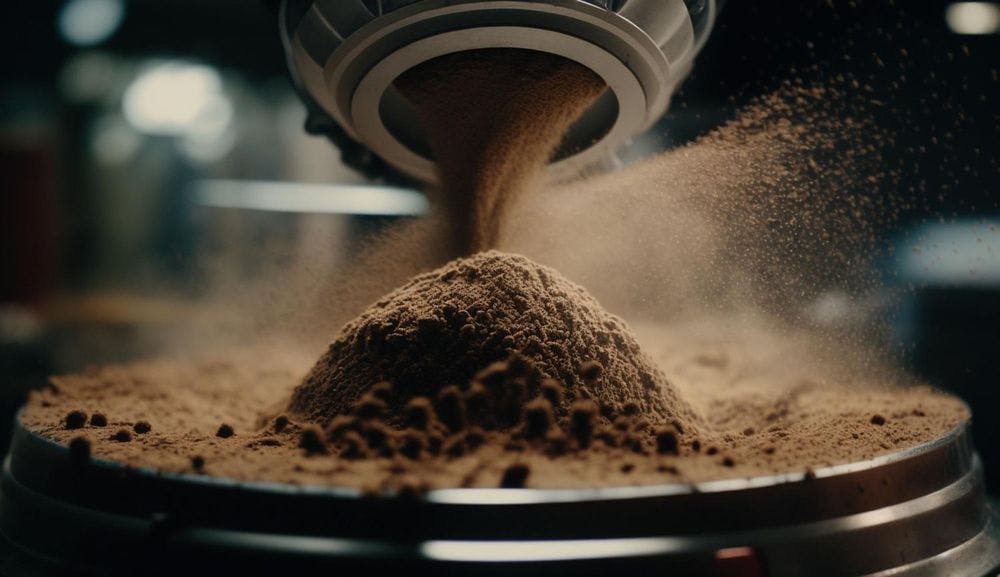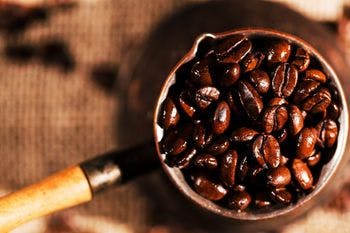
What is Micro Lot coffee?

Ever desired a coffee experience that surpasses your morning coffee ritual?
One where each sip transports you to a hill station, whispering tales of proper care and flavor burst dancing on your tongue?
In this article, we are going to have a detailed discussion about Micro lot coffee.
What is Micro Lot Coffee?
Micro lot coffee is a small quantity of coffee beans that are produced from a specific and carefully selected portion of a coffee farm.
These beans are often distinguished by their exceptional quality, unique flavor profiles, and limited availability.
Micro lot coffee is the result of meticulous farming practices, such as selective harvesting, where only the ripest cherries are picked, and attention to detail throughout the processing and roasting stages.
Due to their limited quantity and superior quality, this coffee is often sold at a premium and is highly sought after by coffee enthusiasts looking for a distinctive and memorable coffee experience.
Characteristics of Micro Lot Coffee
1) Limited Quantity
As the name suggests, micro-lot coffees are produced in small quantities. This limited quantity contributes to their exclusivity and often higher price points.
2) Specific origin
These coffees are sourced from a specific, well-defined location within a coffee farm. This precise origin can include a particular plot, altitude, or region.
3) Exceptional flavor profile
It is prized for its exceptional and nuanced flavor profiles. The specific conditions for it, include soil, climate, and altitude, contributing to the distinct taste of the beans.
4) High-quality cultivation
Producers of these coffees pay strong attention to cultivation practices. This includes careful selection of coffee varieties, precise harvesting methods, and sometimes unique processing techniques, all aimed to maximize the quality and uniqueness of the beans.
5) Varietal diversity
It may showcase specific coffee varieties that are cultivated in a particular area. A diverse variety can contribute to a wide range of flavors and aromas in the final cup.
6) Artisanal roasting
This coffee is often roasted with a high degree of craftsmanship. Roasters take the time to highlight and enhance the unique characteristics of each batch, bringing out the best flavors that it has to offer.
Why Choose Micro Lots?
1) Unique flavor profiles
Micro-lot coffees are celebrated for their exceptional flavor profiles. The specific growing conditions for it include factors such as soil composition and altitude, contributing to distinctive taste notes that set them apart from more conventional coffees.
2) Traceability and transparency
These coffees deliver a high level of traceability and transparency. Consumers can often trace the beans where they were grown. This transparency fosters a deeper connection between consumers and the origin of their coffee, allowing them to make more informed and ethical choices.
3) Support for local producers
Choosing this coffee supports small-scale coffee producers and farmers. These producers often put in extra effort and attention in the cultivation, and direct relationships between consumers and producers can help ensure fair compensation for their work.
4) Exclusivity and rarity
It is produced in limited quantity, adding an element of exclusivity and rarity. Coffee enthusiasts often appreciate the opportunity to experience unique and hard-to-find coffees that may only be available for a limited time.
5) Cultural and regional diversity
It often showcases the cultural and regional diversity of coffee-producing areas. Different micro-lots within a single region can offer diverse flavor profiles, highlighting the influence of local regions and farming practices.
6) Quality assurance
The focus on specific growing conditions and careful cultivation practices associated with this coffee contributes to higher overall quality. Producers of micro-lot coffees are often dedicated to maintaining the highest standards during the entire coffee production process.
7) Direct trade and ethical sourcing
Mostly this coffee is sourced through direct trade relationships, promoting fair compensation for farmers and ethical practices. This approach ensures that a significant portion of the revenue goes directly to the producers, supporting sustainable agriculture and community development.
Micro Lot Coffee vs Mass Produced Coffee
1) Quality and Flavor
Microlot coffee is cared for and often handpicked which results in a superior quality product with unique and complex flavor profiles. They reflect the specific terroir and cultivation practices of the small farms where they are grown.
On the other hand, mass-produced coffees are consistent in flavors but may lack the nuanced flavors and distinctive characteristics found in micro-lot coffees. They are produced on a larger scale, often using mechanized processes that may not prioritize flavor preservation.
2) Sourcing and Transparency
The Micro lot coffee is often sourced through direct trade relationships which ensures fair prices for farmers and greater transparency in the supply chain. This direct relationship allows consumers to know exactly where their coffee comes from and how it was produced.
On the other hand, the sourcing and production practices of mass-produced coffees are often less transparent. They are usually sourced through larger coffee brokers or importers which makes it harder to trace the coffee back to its origin or verify the farming practices used.
3) Impact on Farmers and Sustainability:
Purchasing micro-lot coffees supports small-scale farmers and promotes sustainable farming practices. It helps these farmers earn a fair price for their products and encourages them to continue producing high-quality, environmentally friendly coffee.
While mass-produced coffees are more affordable and accessible, they may not always prioritize the well-being of farmers or sustainable farming practices. The focus is often on maximizing production and minimizing costs.
4) Availability and Price
Due to their small production volumes and higher quality, micro lot coffees are often more expensive and limited in availability. They are sought after by coffee enthusiasts looking for unique and premium coffee experiences.
Mass-produced coffees are readily available and more affordable than micro lot coffees. They cater to a wider audience and are often the go-to choice for daily coffee consumption.
How to identify a Micro Lot coffee?
1) Labels and packaging is the trick
Check for specific labeling or packaging that tells the coffee is a micro-lot. Roasters and coffee producers often use terms like "micro-lot," "single origin," or the name of the specific farm or region to highlight the specialty coffee.
2) Detailed origin information
It generally has detailed information about their origin. It may include the name of the farm, the specific plot or section of the farm, the altitude, and sometimes even the names of the producers. A lack of detailed origin information may indicate that the coffee is not a micro-lot.
3) Limited availability
This coffee is produced in limited batches, and they may only be available for a certain period each year. If coffee is advertised as being available in small batches or for a limited time, it could be a sign that it's a micro-lot.
4) High-quality presentation
It stresses quality. You can see it in the packaging, which may include unique designs, detailed tasting notes, and information about the specific characteristics of the beans.
5) Cupping notes
Roasters often provide cupping notes that define the flavor profile of the coffee. Micro-lot coffees are known for their nuanced and unique flavors, and these notes can give you highlights into the specific taste characteristics associated with it.
6) Roaster information
Reputable roasters who offer micro-lot coffees will often provide information about their sourcing practices, the farms they work with, and their commitment to quality. You can check the roaster's website or contact them directly for detailed information.
7) Don't shy away from asking questions
If you're purchasing coffee from a local roaster or coffee shop, don't hesitate to ask questions. Baristas and staff knowledgeable about the coffee they sell should be able to provide information about whether a particular coffee is a micro-lot and share details about its origin.
8) Online specialty coffee retailers
Many online specialty coffee retailers specifically emphasize this coffee in their offerings. When shopping online, don't miss the filters or categories that specify micro-lots. Moreover, read product descriptions for information about the coffee's origin.
Challenges in the production of Micro Lot coffee
1) Limited Quantity
This coffee focuses on small, distinct batches, which can be a challenge. Producing limited quantities may not be as economically viable for farmers, as larger volumes often lead to more stable income.
2) Vulnerable weather conditions
It often comes from specific areas of a farm, making it more vulnerable to the impact of critical weather conditions. A single weather event, such as a storm or drought, can influence the production and quality of micro-lot beans to a greater extent.
3) High production costs
The attention to detail and precision needed for cultivating this coffee can lead to higher production costs. This includes expenses related to specialized farming practices, harvesting methods, and maintaining optimal growing conditions.
4) Risk of crop failure
As they are cultivated in specific environments, there is an increased risk of crop failure due to external factors like pests, diseases, or other agricultural challenges. A failed micro-lot can be quite devastating for farmers.
5) Time-consuming cultivation practices
Achieving the desired quality and unique characteristics of micro-lot coffee may require more time-consuming cultivation practices. This includes careful harvesting, processing, and drying methods that require detailed attention and labor.
6) Market access and distribution
It is often produced by small-scale producers, and accessing wider markets can be a challenge. Establishing connections with specialty coffee roasters or direct trade relationships is vital but may not always be straightforward for small producers.
7) Scaling issues
Scaling up the production of micro-lot coffee to meet increasing demand without compromising quality can be a challenging balancing act. Maintaining the exclusivity and uniqueness of this coffee while expanding production is a challenge for both farmers and roasters.
8) Logistical challenges
The logistics of handling small batches of coffee from remote or specific locations can be tough. Transportation and storage of these beans may demand additional care and attention to retain top-notch quality.
The Future of Micro Lots
1) Transparency
Imagine tracing your coffee's journey from seed to cup with a single app! Blockchain tech might become the new normal, ensuring fair trade and building trust with every sip.
2) Coffee suggestions by AI
Escaping the guesswork, AI could become your coffee advisor, suggesting Micro Lots that match your taste buds like a dream.
3) Nano Lot might emerge
Prepare yourselves for even smaller batches! Nano Lots might emerge, pushing the boundaries of flavor intensity and exclusivity.
4) Sustainability exercised
Sustainability can lead to shade-grown farming and water conservation, making every cup a win for the planet.
5) Global coffee collaborations
Imagine Micro Lot blends from different regions, creating flavor combinations that will blow your mind!
6) Micro Lots for everyone
Supermarkets and regular coffee shops offer curated selections, making these bean treasures accessible to all.
Summing It Up
Here, I have got you covered with the complete information about the Micro Lot coffee.
Micro Lot coffee is a reminder that every sip can be an adventure. The future of these beans isn't just about coffee, it's about connection.
These tiny batches are bridging the gap between farmers and coffee lovers, fostering an appreciation for craftsmanship and the unique story in every cup.
For more such coffee adventures, subscribe to our YouTube channel or follow us on Instagram and be a part of our community.
FAQs
1) How many lots is a micro lot?
A micro lot has no specific definition but generally, it refers to coffee from a very small plot, often under 1 hectare.
2) What is the difference between standard, micro, and mini lots in the coffee industry?
Standard lots are larger and blend beans from different farms or regions, while micro lots concentrate on specific farms and unique flavor profiles. Mini lots are even smaller than micro lots, offering extreme exclusivity and rarity.
3) How much does a bag of micro lot coffee cost you?
Micro lot coffee prices vary extensively, but depending on origin, processing, and roasting, a 12-ounce bag can range from $20 to $50.

I am a coffee aficionado based in Seattle. I have devoted my passion and expertise to perfecting the art of home coffee brewing. I became known for my exquisite pour-over and espresso creations. I source coffee beans from local roasters and explores ...


